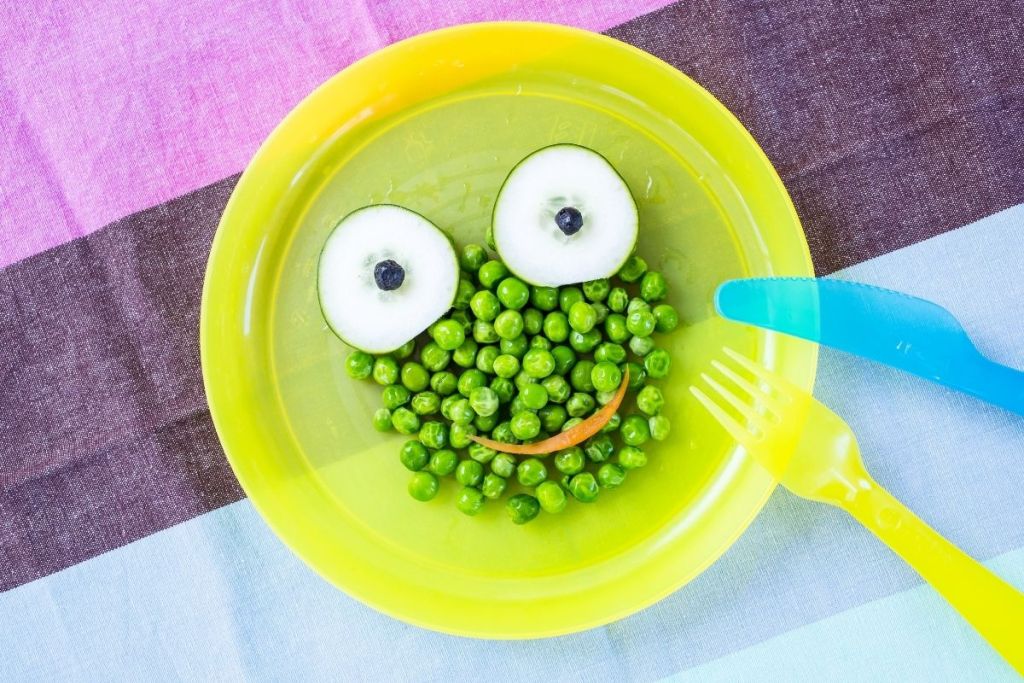Mealtime can be a stressful time for parents and kids when the child is refusing to eat. If you’re wondering how to get a child to eat when they refuse, you aren’t alone. Plenty of parents wind up stressed out and frustrated in the same situation. Even though you may be stressed out about it, the last thing you’ll want to do is try forcing a child to eat food they don’t like. That will only make things worse and they’ll be even less likely to eat. The good news is, there are some tricks you can try for getting your child to eat.

How to get a child to eat when they refuse
Avoid the refusal
Before we talk about how to get a child to eat when they refuse, we need to discuss how to get them not to refuse in the first place. If you create an environment where they will want to eat, you can avoid the stand-off moment altogether.
Here are some tips for setting up a happy mealtime:
- Serve meals that have at least some foods that are familiar to and liked by your child instead of a meal of all new foods. If you regularly serve a plate that always has something they’re happy to eat, it will get them eating and avoid some conflict.
- Serve small portions. Kids can be overwhelmed by too much food on the plate.
- Involve your child in meal planning and cooking. They don’t need to dictate what the family eats, but they can have a say.
- Eliminate distractions. Having a family dinner without phones or TV will help let your child know that now is the time to eat and to focus on that one task.
- Don’t snack too close to mealtime. You can move mealtime earlier if they’re hungry, but don’t let them fill up before you expect them to eat a full meal.
- Make recipes they are more likely to be open to. If they refuse broccoli but love pizza, try putting a small amount of broccoli as a pizza topping. You can also experiment with the presentation, like cutting a sandwich into a dinosaur shape.
- Watch the drinks. Don’t let your child fill up on a sugary juice with or before a meal.
However, if you’re already at the table and they are pushing their plate away, what do you do then?

Dealing with the refusal
It is very tempting to try anything you can to get your child to eat, but in the end, serving them something they like and something new means that if they are hungry, they will eat. If they realize you’re not going to give them an alternative, it’s their choice if they truly don’t eat anything.
While some of these strategies might work in the short-term, they lead to habits that are hard to get out of and only perpetuate picky eating:
- Bribing (one more bite and you can have dessert)
- Punishing (no dessert because you didn’t clean your plate)
- Forcing (you can’t leave the table until you’ve eaten more)
Forcing a child to eat food they don’t like won’t make them like the food; it will likely cause them to resent the food. By simply exposing them to the new food on their plate regularly alongside foods they do know and like, eventually they will likely try it.
Kids can develop unhealthy relationships with food by being forced to eat when they don’t want to. It’s best to try to let them self-regulate and respect when they say they are done. If they leave the table but start asking for snacks or dessert, remind them they have food at the table if they are hungry.
Take the stress out of it
Battling over mealtime is stressful for both you and your child, and it’ll only make it less likely that they’ll eat. Don’t allow the situation to escalate and eliminate the power struggle. If they’re hungry, they’ll eventually eat. Keep in mind that younger children who are picky eaters tend to grow out of their frustrating food habits as they get older. Refusal to eat is likely just a phase.
If your child’s pediatrician is not concerned about their growth, don’t worry too much. If you are concerned about a sensory processing disorder, extreme picky eating or weight loss, certainly open a conversation with your family’s doctor. You can also add a vitamin if you’re worried about their nutrition.
Making them eat “just one more bite” doesn’t actually get that much nutrition into their bellies, but it does set up an unpleasant dynamic around food. Picky eating is often temporary, so try the tips above and try not to worry too much.



